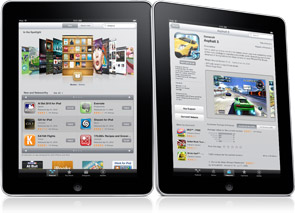The publishing industry and the media have been up in arms since Apple introduced its new subscription service last week. What I don’t understand is why publishers think it’s Apple’s responsibility to make them successful.
[ad#Google Adsense 300×250 in story]Let’s face it, the publishing industry has been going downhill fast for many years. In some respects, they have nobody to blame but themselves.
Of course, as a society our reading habits have changed dramatically as technology advanced, but publishers have been giving their product away like penny stocks for a long time. This was in large part to counteract declining circulation, but they devalued their publications too.
You can get magazines and newspapers from subscription Web sites, pull out fliers, telemarketing phone calls and a number of other annoying methods that lead most consumers to just say no.
 The Internet changed publishing forever and many publications were very slow to capitalize on the opportunities, instead choosing to stand in front of an oncoming freight train. That didn’t work out so well for them.
The Internet changed publishing forever and many publications were very slow to capitalize on the opportunities, instead choosing to stand in front of an oncoming freight train. That didn’t work out so well for them.
Now we are on the cusp of another publishing revolution and the industry is again standing in front of that freight train.
I read an article on TechCrunch over the weekend written by Tien Tzuo, founder of Zuora, a subscription billing company. He outlines what he feels are some of the problems with Apple’s model, but I think the article also proves my point.
Tzuo says that Apple only offers one subscription model and that won’t work for a variety of publishers.
I don’t see why not. Apple allows publishers to set the price and length of subscriptions (weekly, monthly, bi-monthly, quarterly, bi-yearly or yearly). How is that different than my home delivery subscription now?
To be clear, Apple takes a 30 percent cut of subscription revenue only when Apple brings that customer to the magazine or newspaper. If the publisher brings that customer, Apple gets nothing.
How does this differ from paying telemarketing firms to get subscribers?
Tzuo says:
Apple has no way to bundle physical and digital goods. Do you want to give up home delivery forever?
Yes, absolutely. I’ll gladly give up my home delivery. Apple isn’t in the business of home delivery, so why do publishers think they would offer that option.
Tzuo says:
With the Apple model, there’s not enough adequate ad revenue from tablet editions of magazines and newspapers.
I’m sorry, how is that even remotely Apple’s problem. Advertising is the publishers problem, not Apple’s.
Tzuo says:
Consumers won’t stand for one subscription through one device.
Again, not Apple’s problem. If publishers want their magazines available on multiple platforms, then make it available for multiple platforms.
Tzuo goes on to criticize Apple for giving consumers the opportunity to not give their information to publishers. I’m sorry, as a consumer this is a good thing to me. I’m paying you for your magazine, not so you can call me every week and harass me about another special deal.
Apple is not a charitable organization — they are in business to make money. If Apple is maintaining the technology and infrastructure for this new publishing paradigm, then they should charge for that.
In traditional publishing, companies had to pay for paper, ink, the organization to maintain everything, shipping, telemarketing, fliers and a host of other expenses. The new publishing model does away with many, although not all, of these costs. Why then is paying Apple 30 percent a burden?
This is a business decision for the publishers. It’s that simple. If you think Apple’s terms are too aggressive, then bow out of this publishing model and go on the way you always have.
Apple is not forcing publishers to come on board and publish for the iPad. They are offering publishers an opportunity to sell their magazines and newspapers to people that own 160 million iOS devices. If you don’t want it, move on.
However, I believe the publishers that do move on from this new publishing model will be the ones written about in a couple of years that have gone out of business because they refused to change.
Probably written about in publications available on the iPad.
